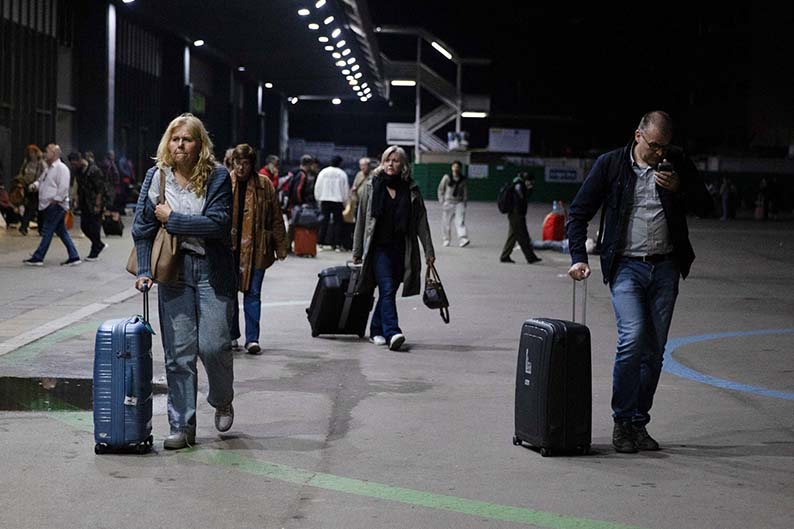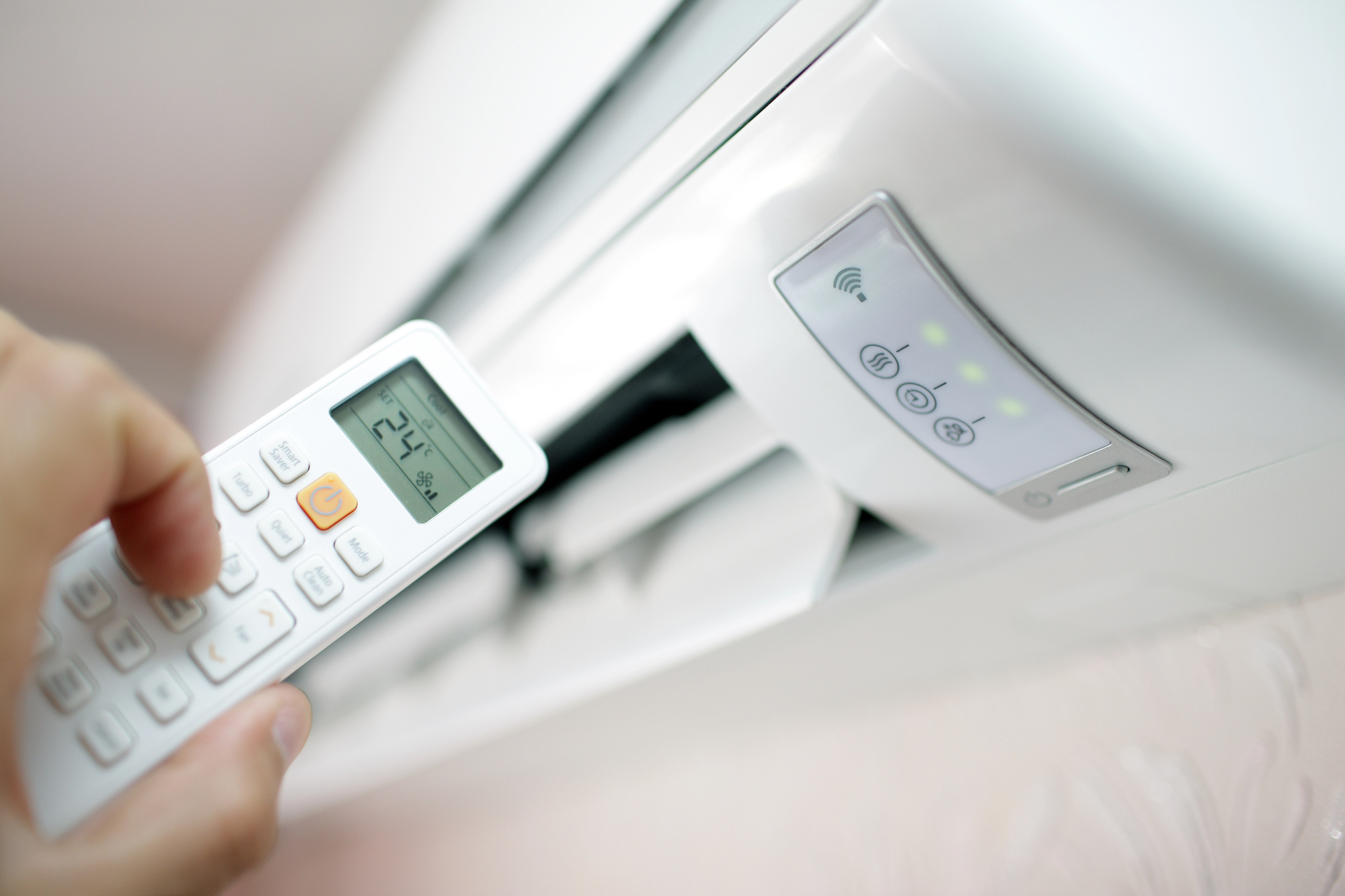Will there be a price hike or not? Will the grid be able to cope in the summer heat? Answers yet to come
No definitive decision has yet been taken regarding the proposed revision of the Electricity Authority’s (EAC) rates, translating into a 7.5 per cent hike on consumer invoices, the Cyprus Mail has learned. After a personal intervention by President Nikos Christodoulides, the state-run power utility seems to have shelved the planned tariff increase for now, although some increase cannot be altogether ruled out.
Over the weekend of May 10-11, the president confirmed to journalists that he had “sternly urged” the EAC to make sure electricity prices didn’t go up. This remonstration had taken place discreetly, “away from the public glare”.
It’s understood that the president – evidently eager to avoid a politically unpopular increase in electricity prices – intefered after the EAC had conferred with the energy regulator over the same issue.
The EAC board had earlier presented its expenses to the energy regulator (Cera), requesting an upward adjustment of its tariffs to cover costs. For electricity consumers, this would have represented a 7.5 per cent hike.
Normally the EAC goes through this routine every two years. It submits its expenses for review, and the regulator either signs off and approves a rate readjustment, or makes amendments. The regulator has the final say.
By law the EAC, whose operations are regulated, is allowed a return on capital – colloqually known as a ‘legitimate profit margin’ – of up to 4.66 per cent. This should not be confused with the 7.5 per cent rate increase.
In this particular case, the expenses submitted covered the years 2023 and 2024 up to the end of 2025.
Judging by the president’s intervention, one can safely assume that the regulator okayed the EAC’s request. In doing so, Christodoulides arguably used his political clout to overrule the regulator, which othewise is supposed to be an independent authority.
Then on Friday, May 16, chairman of the EAC board Giorgos Petrou said he did not think that a price hike would be necessary. The organisation had “strong [cash] reserves” to fall back on, he added.
These remarks roiled the EAC trade unions. They spoke of a “facile” and “amateurish” handling of the situation by the EAC board – meaning Petrou.
Marios Papoutis, head of the Sepaik union representing scientific staff at the EAC, told us that Petrou had acted “irregularly”.
How the EAC chairman ought to have handled it, said Papoutis, is that after the president’s public intervention he should’ve gone back to the board, they would have taken another look at the books, and then duly briefed the president of their decision.
“He [Petrou] did not follow proper procedure,” the union boss said. “Effectively he forfeited these [EAC] expenses.”
The trade unionist explained how the procedure works between the EAC and the regulator.
The expenses submitted for review are those which EAC has paid for in the preceding period and for items that are in use or operational.
For instance, the EAC has already paid for a new turbine at Vasiliko station, forking out €60 million. But the turbine is not operational as of now, so this item was not included in the expenses submitted to the energy regulator. This expenditure gets rolled over to the next review.
The issue that Papoutis has, is that ‘waiving’ the proposed rate hike could end up eating into the EAC’s cash reserves or even its cash flow. And having such a buffer is necessary for planned investments by the organisation.
In short, the move could undermine the EAC’s development programme.
To illustrate further, Papoutis cited the LNG terminal at Vasiliko. Even though it’s not operational – in fact for some the project is very much up in the air – in the meantime the EAC continues to spend money on it.
In addition, expenses for improvements and upgrades to the grid are ongoing.
And, complained the union boss, this is the third time in a row that the EAC has not gotten its requested rate increase – meaning that considerable expenses have accumulated on its books.
Following Papoutis’ outburst in the media earlier this week, the board convened a meeting with the EAC syndicates on Wednesday.

“What we know is that the board has yet to formally decide on the matter of the rate hike,” Papoutis told us.
So what’s next? On May 29 the EAC board will meet with the president again, presumably to discuss this issue among others.
Asked what might happen, Papoutis would not hazard a guess.
“The requested increase in tariffs might be scrapped, or it might not, or a different increase decided…many possibilities.”
We reached out to Petrou, the EAC chairman. In a brief telephone conversation, Petrou declined to comment beyond what has been stated in public so far.
“We’re discussing it. We will know more soon, be patient,” he offered.
Returning to Papoutis, we asked him about his other warnings – relating to the adequacy of electricity for the coming period.
“We’ve got a very difficult summer ahead – we’ll be walking a fine line. It will also depend on how hot it gets.”
EAC unions have been warning since 2021 that the situation with electricity adequacy is borderline.
And both the energy regulator as well as the Transmission System Operator have cautioned about potential electricity shortages this summer.
Papoutis summarised the issue thus: production from renewables (photovoltaics) peaks around noon. The problem occurs at dusk, because then conventional power kicks in and takes over the load. And for technical reasons (which have to do with frequencies) this switchover must happen within fractions of a second, almost instantaneously, otherwise it might jeopardise the stability of the grid.
The load is how many megawatts you need in the system to cover demand, otherwise the system goes unstable. It’s the maximum expected demand on the system at any given time.
Solar in Cyprus has approximately 850 megawatts (MW) of installed power.
During spring and autumn, the load on the system is around 650 MW. In winter it reaches 950 MW. In summer it can get up to 1,270 MW.
Meanwhile, total installed capacity of conventional power production (diesel, heavy fuel oil) is 1,470MW.
Now, 1,470 minus 1,270 gives 200 MW. However, the safety margin for the Cyprus grid is greater than that – 230MW.
“So if something goes wrong, if you have a backup generator, you can scrape by. But what if you don’t? Or something else goes wrong? So the situation is literally borderline.”
This lurking issue with the system load, and the switchover at night, has arisen over the last three years.
According to Papoutis, the situation nearly went critical earlier this year – specifically on January 25.
“We got close to a blackout…what happened to Spain recently.”
Here, the union boss went back to the management of the EAC. He recalled that a final decision on purchasing an additional turbine for the Dhekelia power plant is still pending. A decision on installing storage for electricity is likewise pending.
“We need action soon, otherwise we’ll keep skirting the edges,” he noted dramatically.






Click here to change your cookie preferences